Hypertension and Diabetes
Medically reviewed by Drugs.com. Last updated on May 6, 2024.
What do I need to know about hypertension and diabetes?
Hypertension is high blood pressure (BP). A normal BP is 119/79 or lower. Hypertension is a BP of 130/80 or higher. You can control hypertension and diabetes with a healthy lifestyle, or a combination of lifestyle and medicine. Controlled BP and blood sugar levels help prevent certain complications from diabetes. Examples include retinopathy (eye damage) and kidney damage.
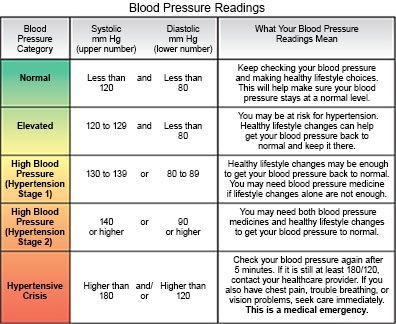 |
What increases my risk for hypertension with diabetes?
- The type of diabetes you have and how long you have had diabetes
- Blood sugar levels that are not controlled
- Other medical conditions, such as kidney disease, thyroid disease, or sleep apnea
- Older age, or being male or African American
- Obesity or lack of exercise
- A family history of hypertension or heart disease
- Too many high sodium (salty) foods
- Stress
- Use of tobacco, alcohol, or illegal drugs
- Certain medicines, such as steroids or birth control pills
What are the signs and symptoms of hypertension in persons with diabetes?
You may have no signs or symptoms, or you may have any of the following:
- Headache
- Blurred vision
- Chest pain
- Dizziness or weakness
- Trouble breathing
- Nosebleeds
How is hypertension diagnosed?
Your healthcare provider will ask about your symptoms and the medicines you take. Tell your provider if you have a family history of high BP and about any health conditions you have. Your provider will check your BP. If your BP is high, you will need to have it confirmed at another visit. Your provider will also check your weight and examine your heart, lungs, and eyes. You may need any of the following tests:
- An ambulatory blood pressure monitor (ABPM) is a device that you wear. ABPM measures your BP while you do your regular daily activities. It records your BP every 15 to 30 minutes during the day. It also records your BP every 15 minutes to 1 hour at night. The recorded BPs help your healthcare provider know if you have hypertension not seen at your appointment.
- Blood tests may help healthcare providers find the cause of your hypertension. Blood tests can also help find other health problems caused by hypertension.
- Urine tests will be done to check your kidney function. Kidney problems can increase your risk for hypertension.
How is hypertension treated?
Treatment depends on any other medical conditions you have, and any known cause of your hypertension. Treatment will also depend on your BP goal. For example, your goal may be to keep your BP below 130/80, or to reach a specific target BP. Your healthcare provider may recommend lifestyle changes to lower your BP. You may also need any of the following:
- Medicine may be used to help lower your BP. You may need more than one type of medicine. Take the medicine exactly as directed.
- Diuretics help decrease extra fluid that collects in your body. This will help lower your BP. You may urinate more often while you take this medicine.
- Cholesterol medicine helps lower your cholesterol level. A low cholesterol level helps prevent heart disease and makes it easier to control your BP.
How can I manage hypertension and diabetes?
Talk with your healthcare provider about these and other ways to manage hypertension and diabetes:
- Check your BP at home. Do not smoke, drink caffeine, or exercise at least 30 minutes before checking your BP. Sit and rest for 5 minutes before you take your BP. Extend your arm and support it on a flat surface. Your arm should be at the same level as your heart. Follow the directions that came with your BP monitor. Check your BP 2 times, 1 minute apart, before you take your medicine in the morning. Also check your BP before your evening meal. Keep a record of your readings and bring it to your follow-up visits. Ask your provider what your BP should be.
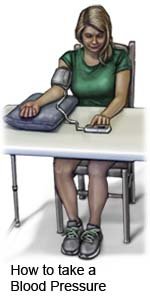
- Check your blood sugar level at home. Follow your provider's instructions and check your blood sugar level as directed. You may need to check a drop of blood in a glucose test machine. Your care team provider may recommend a continuous glucose monitor (CGM). A CGM is a device that is worn at all times. The CGM checks your blood sugar every 5 minutes. It sends results to an electronic device such as a smart phone. Keep a record of your blood sugar level readings and bring it to your follow-up visits. Ask your provider what your blood sugar levels should be.
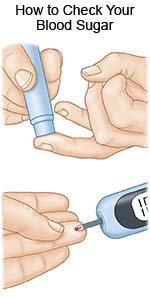
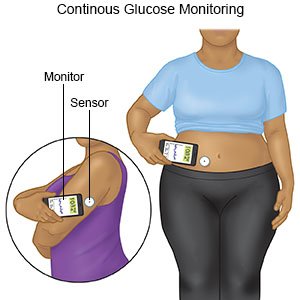
- Manage any other health conditions you have. Health conditions such as kidney disease, thyroid disease, or adrenal gland disorder can increase your BP and blood sugar levels. Follow your provider's instructions and take all your medicines as directed.
What lifestyle changes can I make?
Talk with your healthcare provider about these and other lifestyle changes for hypertension and diabetes:
- Limit sodium (salt) as directed. Too much sodium can affect your fluid balance. Check labels to find low-sodium or no-salt-added foods. Some low-sodium foods use potassium salts for flavor. Too much potassium can also cause health problems. Your provider will tell you how much sodium and potassium are safe for you to have in a day. He or she may recommend that you limit sodium to 2,300 mg a day.

- Follow the meal plan recommended by your provider. A dietitian or your provider can help you create healthy meal plans. The plans will help you control sodium, carbohydrates, and fats in your meals. This can help you control both your blood sugar and BP levels. The plans usually include eating more fruits, vegetables, and low-fat dairy products. Your provider may talk to you about a Mediterranean style and Dietary Approaches to Stop Hypertension (DASH) eating plans. These eating plans can help you with weight loss and lowering your cholesterol.

- Get regular physical activity. Physical activity can help decrease your blood sugar level. It can also help to decrease your risk for heart disease and help you maintain a healthy weight. Adults should have moderate intensity physical activity for at least 150 minutes every week. Spread the amount of activity over at least 3 days a week. Do not skip more than 2 days in a row. Children should get at least 60 minutes of moderate physical activity on most days of the week. Examples of moderate physical activity include brisk walking, running, and swimming. Do not sit for longer than 30 minutes. Work with your provider to create a plan for physical activity.

- Decrease stress. This may help lower your BP. Learn ways to relax, such as deep breathing or listening to music. Yoga and meditation may also help. Talk to your provider about ways to decrease stress.
- Limit alcohol as directed. Alcohol can cause your blood sugar levels to be low if you use insulin. Alcohol can cause high blood sugar and BP levels, and weight gain. Women 21 years or older and men 65 years or older should limit alcohol to 1 drink a day. Men aged 21 to 64 years should limit alcohol to 2 drinks a day. A drink of alcohol is 12 ounces of beer, 5 ounces of wine, or 1½ ounces of liquor.
- Do not smoke. Nicotine and other chemicals in cigarettes and cigars can increase your BP and make your blood sugar levels harder to control. Ask your provider for information if you currently smoke and need help to quit. E-cigarettes or smokeless tobacco still contain nicotine. Talk to your provider before you use these products.
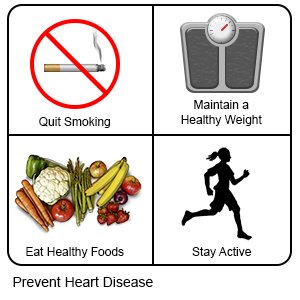
Call or have someone call your local emergency number (911 in the US) for any of the following:
You have any of the following signs of a heart attack:
- Squeezing, pressure, or pain in your chest
- You may also have any of the following:
- Discomfort or pain in your back, neck, jaw, stomach, or arm
- Shortness of breath
- Nausea or vomiting
- Lightheadedness or a sudden cold sweat
- Numbness or drooping on one side of your face
- Weakness in an arm or leg
- Confusion or difficulty speaking
- Dizziness, a severe headache, or vision loss
When should I seek immediate care?
- You feel faint, dizzy, confused, or drowsy.
- You have a severe headache or vision loss.
When should I call my doctor or diabetes care team provider?
- You have been taking your BP medicine and your BP is still higher than your healthcare provider says it should be.
- You have questions or concerns about your condition or care.
Care Agreement
You have the right to help plan your care. Learn about your health condition and how it may be treated. Discuss treatment options with your healthcare providers to decide what care you want to receive. You always have the right to refuse treatment. The above information is an educational aid only. It is not intended as medical advice for individual conditions or treatments. Talk to your doctor, nurse or pharmacist before following any medical regimen to see if it is safe and effective for you.© Copyright Merative 2024 Information is for End User's use only and may not be sold, redistributed or otherwise used for commercial purposes.
Further information
Always consult your healthcare provider to ensure the information displayed on this page applies to your personal circumstances.
